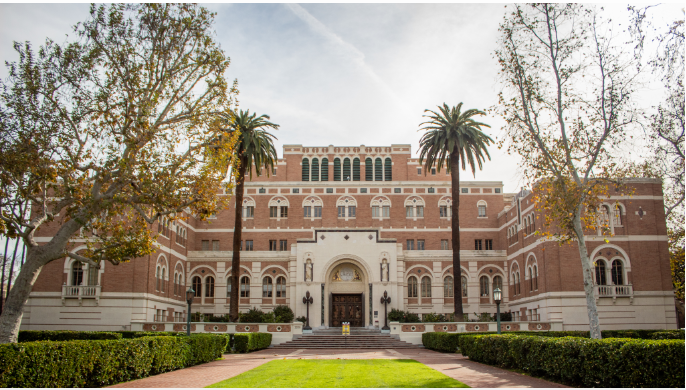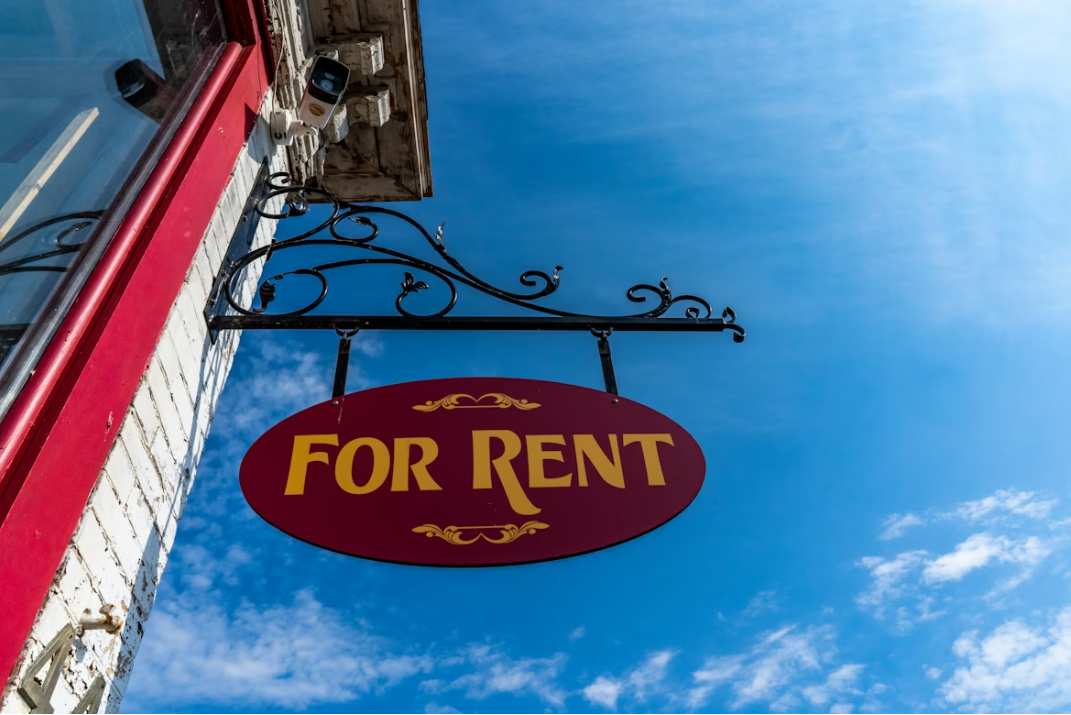According to Daily Trojan, the only independent newspaper at USC, USC’s acceptance rate for the Class of 2028 is expected to be 9.2%. This sub-10% acceptance rate shows that USC is immensely popular and competitive. This blog is the most complete introduction to everything about the USC acceptance rate.
Intro to University of Southern California
The University of Southern California(USC) is the most prestigious top private research university in the United States and one of the oldest universities on the West Coast of the U.S., located two miles south of Los Angeles, California, United States. Founded in 1880, the university is a global center for the arts, technology, and international business, and its diverse curriculum offers enrolled students a wide range of opportunities for interdisciplinary study. The school’s federally funded computer science research program is among the largest in the country, USC values transfer students and provides a supportive environment for their academic and personal growth.
USC Rankings
- #28 in National Universities#64 in Best Value Schools#28 in Best Undergraduate Engineering Programs (tie)#8 in Business Programs (tie)
- #73 in 2026 World University Ranking
The Latest USC Acceptance Rate
The USC Acceptance Rate for the Fall 2025 entering class (Class of 2029) was 11.2%, solidifying USC’s position as a highly selective institution. This figure reflects the intense competition among a diverse and accomplished pool of applicants from around the globe.
News & World Report ranks USC #25 among National Universities. USC’s high popularity has led to many applicants yearly, and it has also led to a tightly controlled acceptance rate for USC. Here is a table about USC’s acceptance rate for the class of 2028.
| Admission Metric | Fall 2025 (Class of 2029) |
|---|---|
| Total Applicants | 83,488 |
| Total Admits | 9,345 |
| Overall Acceptance Rate | 11.2% |
| Enrolled Students (Yield) | 3,759 (40.3%) |
USC Early Action Acceptance Rate
According to Class of 2029 statistics, the USC E.A. acceptance rate is 8.3%. About 41,000 of this year’s admitted students applied under the early action deadline. While it does not significantly improve an applicant’s chance of admission, E.A. is clearly attractive for many students. As the applicant pool at USC has been increasing steadily over time, we advise students to consider applying through USC’s early admission programs if available. USC estimates that 20-25 percent of our admission spaces will be granted during the EA round.
| Admission Round | Class of 2029 | Class of 2028 | % Change |
|---|---|---|---|
| Applications Received | 42,119 | 40,953 | +2.8% |
| Applications Accepted | 3,524 | 2,938 | +20% |
| ED Acceptance Rate | 8.3% | 7.2% | +15% |
Why Apply for Early Action?
Early applications often receive additional consideration. Applying by the Early Action (EA) deadline enables students to plan for college earlier, should they be accepted during this round of application reviews. It also ensures that students will be considered for USC Merit Scholarships. Early Action (EA) is non-binding, non-restrictive, and unavailable for majors requiring a portfolio or audition. Students applying under USC’s Early Action (EA) plan must submit their application materials earlier in the process but will receive an admission decision sooner than Regular Decision applicants. Besides, applicants to the World Bachelor in Business program must apply to Early Action. The USC Early Action deadline is typically November 1st, with Regular Decision following on January 15th
USC Transfer Acceptance Rate
USC is notably transfer-friendly, offering a significantly higher acceptance rate for transfer students compared to first-year applicants.
| Transfer Admission Metric | Fall 2025 Data |
|---|---|
| Transfer Applications | 10,827 |
| Transfer Admits | 2,929 |
| Transfer Acceptance Rate | 27.1% |
| Average College GPA | 3.68 – 3.95 |
What Influence USC Acceptance Rate
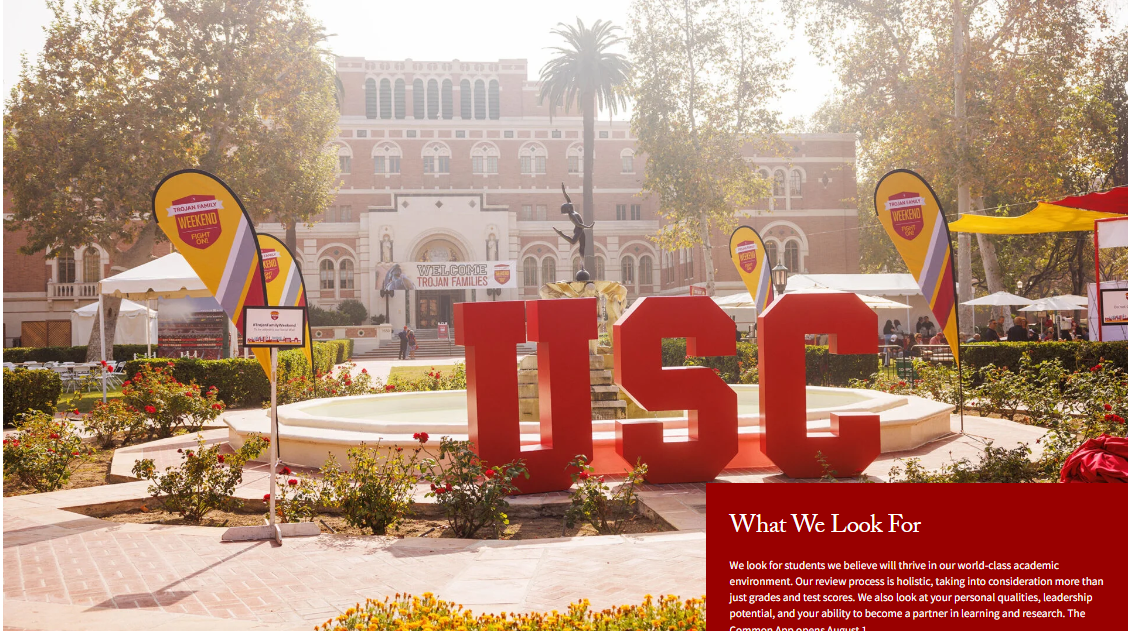
USC has long been renowned for its exceptional academic and athletic programs and prime location in the heart of Los Angeles, California. This prestigious institution has established itself as a top-tier university, attracting international students seeking a transformative educational experience. We listed some factors that influence the acceptance rate for USC.
- Academic Excellence and Rigorous Standards
USC maintains a commitment to academic excellence and adheres to rigorous admission standards. Prospective students are evaluated based on a comprehensive set of criteria, including grade point average (GPA), standardized test scores (SAT/ACT), and the rigor of their high school curriculum. Meeting or exceeding these requirements significantly enhances your acceptance rate to USC. - Intense Competition Among Applicants
The reputation of USC has made it an increasingly popular choice among students, leading to a highly competitive applicant pool. Each year, the university receives many applications from a diverse and accomplished group of individuals, making the admissions process highly selective. This level of competition means that even the most academically strong applicants must differentiate themselves through their extracurricular involvement, leadership experiences, and personal achievements. - USC Applicant Pool Characteristics
The demographics, geographic distribution, and overall qualifications of the applicant pool can fluctuate from year to year, affecting the competitiveness of the admissions process. Factors such as the number of international applicants, the ratio of USC in state acceptance rate and USC out of-state acceptance rate, and the profiles of the applicant pool can all influence USC’s acceptance rate. USC University strives to enroll a diverse group of students who represent a vast array of perspectives and passions; students will enrich each other’s education by challenging each other, inside the classroom and out. Additionally, the USC admission office always pays close attention to students’ personal narratives, backgrounds, and circumstances, which will help them get to know the personalities of students.
| USC Student Demographics | |
|---|---|
| Asian | 19.9% |
| Black/African American | 6.1% |
| Hispanic | 15.9% |
| White/Caucasian | 23.3% |
| International | 27.1% |
| Other | 7.8% |
USC Acceptance Rate vs. UCLA Acceptance Rate
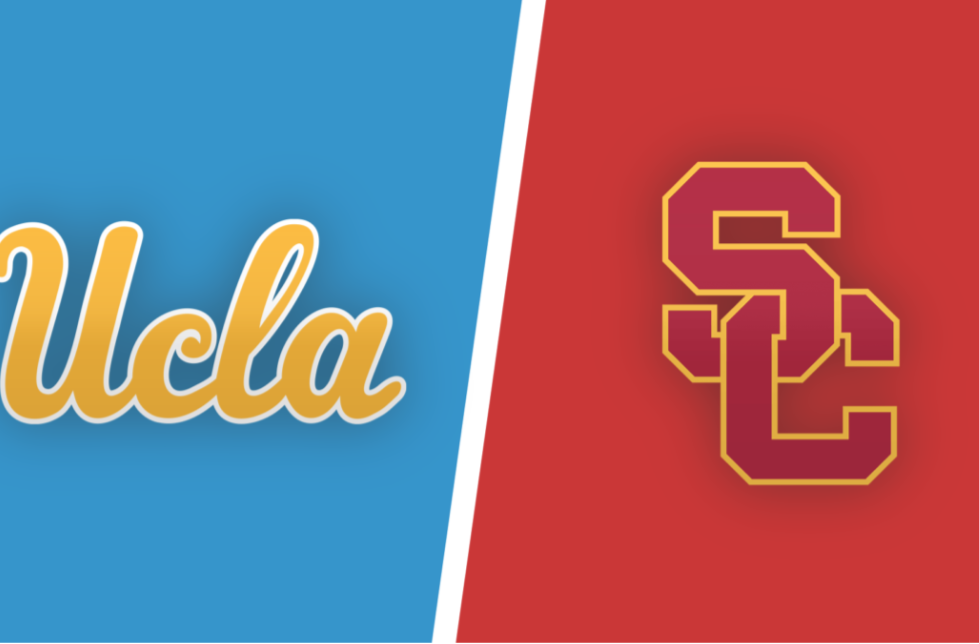
Are you interested in attending college in sunny Los Angeles, California? UCLA and USC are similar in location, ranking, faculty, employment advantages, and academic resources. When you apply, you must wonder which school is better or more suitable for you. While UCLA acceptance rate is about 9%, similar to USC university acceptance rate, there are several key differences you need to remember before you prepare to apply to college.
- PRIVATE COLLEGE VS. PUBLIC COLLEGE
USC is an innovative private research university established in 1880. It blends the autonomy for exploration emblematic of a private institution with its size, resources, and the breadth and scale of a public university. It is also the oldest private research university in the western United States. U.S. News & World Report ranks USC #28 among National Universities. USC is known for its strong academic research, providing a wealth of research opportunities and resources for students, especially in the fields of film arts, engineering, and business.
UCLA is located in the westwood neighborhoods in Los Angeles and is considered the nation’s top public university; with 173,400 applicants in 2024, UCLA is the most applied public school in the U.S., and it offers a wide range of academic resources and research opportunities, students can participate in multiple interdisciplinary research projects, and the UCLA’s research funding and facilities are among the top in the United States.
The public college UCLA has nearly twice as many applications and admissions as the private university USC. In fact, most public schools have twice or even several times as many students as private schools. The difference in enrollment scale leads to differences between public and private universities in examination and admission standards. Comparatively speaking, the enrollment of private universities is a bit smaller. In the process of admitting students, they will pursue a more holistic assessment of the student. In other words, private universities will consider performance data, similar to public schools, and evaluate the student’s extracurricular activities, personal statements or recommendation letters, and personality qualities.
- SCHOOL FEATURES & POPULAR MAJORS
As two of the most prestigious universities in California, USC, and UCLA have long been rivals. Each features a unique educational experience and academic profile. Here is some information about school features and popular programs.
In terms of school features, USC and UCLA exhibit several key differences. USC is renowned for its strength in business, engineering, and cinematic arts, producing many industry leaders and Hollywood elite among its alumni network. In contrast, UCLA is more distinguished for its excellence in the humanities, social sciences, medicine, and engineering disciplines.
As to disciples, USC offers various disciplines; some are more competitive than others. For example, USC’s Marshall School of Business, USC’s School of Cinematic Arts, USC’s Viterbi School of Engineering, USC’s Annenberg School for Communication and Journalism, USC’s Roski School of Art and Design, USC’s School of International Relations, USC’s Department of Psychology. Those majors are considered the most prestigious in USC and must include your favorite ones. These schools align with USC’s reputation as a business, technology, and creative arts hub. Conversely, UCLA’s most popular academic programs are economics, psychology, biology, engineering (electrical, mechanical, aerospace, etc.), and political science. This reflects UCLA’s strengths in the social sciences, natural sciences, and applied technologies.
- TUITION & FEES
When choosing a university, one of the most important factors for prospective students and their families to consider is the cost of attendance. At the outset, it is important to note that USC is a private institution, while UCLA is a public university within the University of California system. This fundamental distinction has a significant impact on the overall cost of attendance. For the 2024-2025 academic year, the estimated cost of attendance at USC, including tuition, fees, room and board, and other expenses, is estimated to be around $95,225 per year for an undergraduate student. In contrast, the total cost of attendance at UCLA for the same academic year is approximately $42,127 for California residents and $76,327 for out-of-state students.
The stark difference in cost between these two institutions can be primarily attributed to the public vs. private university model. As a private university, USC has the autonomy to set its own tuition rates, typically higher than public universities. Additionally, USC does not receive the same level of state funding and subsidies that enable UCLA to offer a more affordable education to California residents. However, it is important to note that the higher sticker price of USC does not necessarily translate to a less accessible education. USC offers a robust financial aid program, with over 60% of undergraduate students receiving some form of financial assistance. Ultimately, the decision between USC and UCLA will depend on various factors, including academic programs, campus life, and, of course, the cost of attendance. While USC may appear more expensive on the surface, its financial aid opportunities can make it a viable option for many students. Conversely, UCLA’s lower tuition and fees can be attractive for those seeking a more affordable public university experience.
In conclusion, USC vs UCLA, which is better? The answer is different for different individuals. Both USC and UCLA are renowned institutions of higher education, they possess unique school features and academic profiles that cater to the diverse interests and aspirations of prospective students. USC’s strengths lie in its private, urban setting and emphasis on professional fields. At the same time, UCLA excels as a public research university with a breadth of expertise in the humanities, social sciences, and STEM disciplines. Ultimately, which college is more suitable for you depending on your choice and preferences.
USC Application Procedures
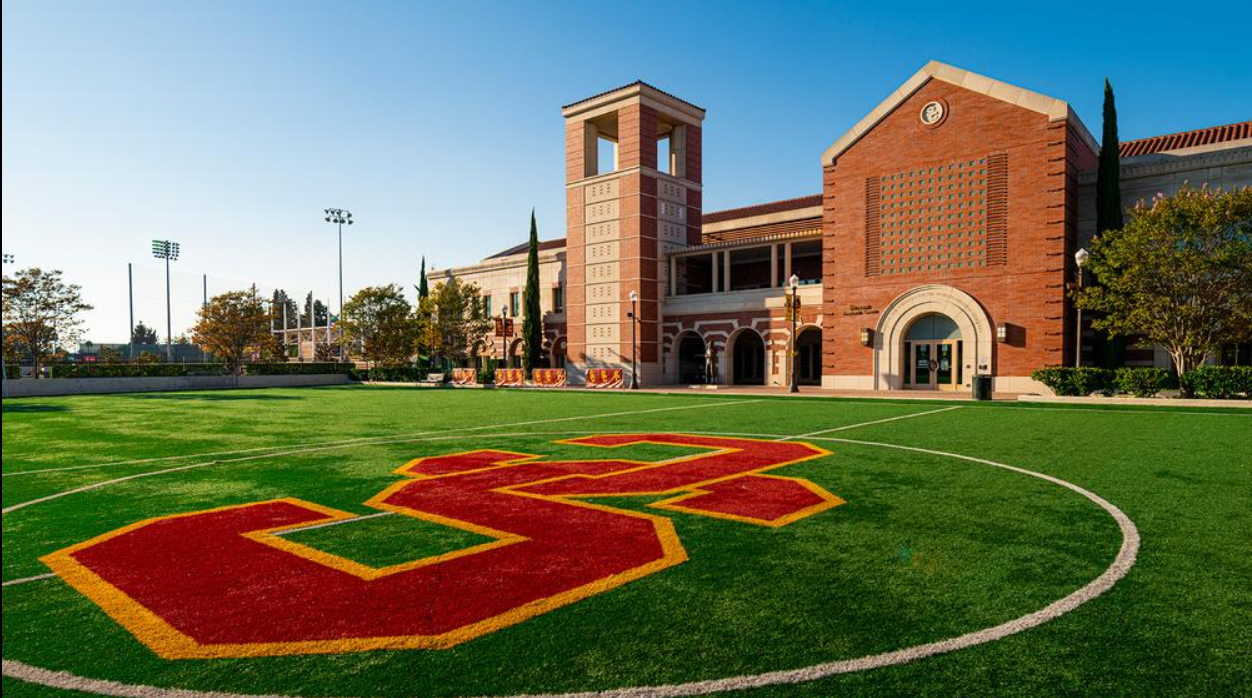
Dates and Deadlines
1. Early Action
Applicants selecting Early Action will be notified of their admission or deferral to Regular Decision in mid-to-late January.
Application Deadline: November 1
Early Action (EA) is non-binding, non-restrictive, and unavailable for majors requiring a portfolio or audition. Students must apply for EA to be considered for USC Merit Scholarships unless their intended major does not participate in Early Action.
2. Regular Decision
Applicants selecting or deferring to Regular Decision will be notified of a decision by April 1.
For majors requiring a portfolio or audition:
Application Deadline: December 1
All other majors:
Application Deadline: January 15
3. Financial Aid
Early Application Deadline: January 12
Regular Decision Deadline: February 7
USC Students’ Academic Profile
| Application Type | Deadline | Decision Notification |
|---|---|---|
| Early Action (EA) | Typically November 1st | Mid-to-late January |
| Regular Decision (RD) | January 15th | April 1st |
USC GPA and Standardized Test Scores
| Application Considerations | |
|---|---|
| SAT Test scores | 1450-1550 Considered (not required) |
| ACT Test scores | 52055 Considered (not required) |
| High school rank | Not required or recommended |
| High school GPA | Required |
| Completion of college prep program | Required |
| Official High school transcript | Required |
| Letter of recommendation | Required |
| Portfolio, resume/or additional writing samples | Required |
| Test of English as a foreign language | Option 1:TOEFL with a minimum score of 100 and no less than a score of 20 in each section. |
The University of Southern California has not explicitly articulated a policy regarding SAT/ACT requirements. However, as the institution has published average SAT or ACT scores, it is likely to be test-flexible in its admissions process. USC states that if you feel your SAT or ACT score accurately represents you as a student, you should submit it. Otherwise, you may choose not to.
Despite this flexible approach, most students still elect to take the SAT or ACT, and the majority of applicants to USC will submit their scores. If applicants choose not to submit test scores, they may be disadvantaged compared to other students, as they will lack an additional dimension to demonstrate their qualifications. It is therefore recommended that candidates consider taking the SAT or ACT and strive to perform well on these assessments.
Given the low acceptance rate for USC, attaining a strong SAT/ACT score and grade point average is crucial to improving one’s chances of admission. Failure to meet the university’s requirements in these areas may result in rejection without extensive consideration. To maximize the prospect of acceptance, we recommend applicants should aim to achieve scores at the 75th percentile, equating to 1520 on the SAT or a 34 on the ACT. Additionally, a GPA of 3.83 or higher is desirable. For those with a lower GPA, a higher SAT/ACT score will be necessary to compensate.
USC Scholarships
USC will likely see an acceptance rate of about 10% for the incoming freshman Class of 2029, according to preliminary statistics from the Office of Admission. For Fall 2025, the University accepted roughly 11.2% of applicants, the low acceptance rate indicates that USC receives a large number of applications. To attract the best and brightest students, USC also offers a range of merit-based scholarships (e.g., USC Trustee Scholarship, USC Presidential Scholarship, USC Dean’s Scholarship). USC is one of the most generous financial aid pools in the U.S., the chool committing over $30 million in additional aid annually, expanding USC’s current $640 million financial aid pool, in other words, USC scholarships assist to 4,000+ students yearly.
University of Southern California scholarships increases the likelihood that top admitted students will accept their offer of admission, thereby improving its yield rate. Besides, USC is committed to making education accessible to students from diverse economic backgrounds. By offering need-based scholarships, USC ensures that talented students, regardless of their financial situation, can afford to attend. Students could apply USC Merit scholarships and need-based financial aid according to your needs. This aligns with the university’s goal of fostering a diverse and inclusive student body. Here are some details of different types USC scholarships.
| USC Scholarships | ||||
|---|---|---|---|---|
| Scholarship Name | Award Amount | Open To | Eligibility Criteria | Application Process |
| Trustee Scholarship USC | Full tuition (approx.$69,900) | Incoming first-year students | Minimum GPA of 3.9+, strong leadership, outstanding academic achievement, top 1-2% of applicants. | Before November 1. Fomajors requiring a portfolio or audition, apply by the December 1 |
| Presidential Scholarship USC | Half tuition (approx.$69,900) | Minimum GPA of 3.8+, strong standardized test scores (if submitted), demonstrated leadership and community involvement. | By mid-February, the Office of Undergraduate Admission will notify candidates chosen to move forward in the scholarship process about their next steps. | |
| National Merit Scholarship USC | $20,000 | Incoming first-year students | Selected on the basis of PSAT performance. Entering first-year students are considered if they have been designated National Merit Finalists and name USC as their first-choice college with the National Merit Scholarship Corporation by May 30. | Students will be contacted by the sponsoring agency. |
| Town and Gown of USC Merit Scholarship | $10,000 for undergraduate tuition and $15,000 for graduate tuition. Awarded annually until graduation. | Incoming and continuing undergraduate and graduate students. | Available to U.S. citizens and permanent residents of Southern California with a minimum unweighted GPA of 3.4. Additional considerations include school activities, community engagement, leadership roles and accolades. An interview is required. | Further information can be found on their website. |
| International Freshman Academic | Varies | Incoming first-year students | Competitive applicants will be at the top of the applicant pool with respect to academic achievement, candidates’talent, perseverance, innovation, involvement and leadership are also considered. | Submit proof of financial support. No additional application is required. Applications must be submitted by the Early Action deadline of November 1. For majors requiring a portfolio or audition, apply by the December 1 Regular Decision deadline. |
| USC Assoicates | $20,000 | Incoming first-year students | Applicants take the most demanding curriculum and achieve at the highest level. Selection criteria is both merit-and need-based. | Submit materials by the Early Action deadline of November 1. For majors requiring a portfolio or audition, apply by the December 1 Regular Decision deadline. |
| Deans Scholarship | One-quarter tuition (approx.$69,900) | Incoming first-year students | Minimum GPA of 3.7+, strong academic record, involvement in extracurricular activities. | Submit materials by the Early Action deadline of November 1. For majors requiring a portfolio or audition, apply by the December 1. |
| Leadership Scholarship | $10,000 | Incoming first-year students | Demonstrated exceptional leadership skills in school or community organizations. | Submit materials by the Early Action deadline of November 1. For majors requiring a portfolio or audition, apply by the December 1 Regular Decision deadline. |
| Alumnae Scholarship Program | $1,000-$4,000 One-time awards given 60-80 awards | Continuing undergraduate students. | Primarily awarded to California residents. Strong emphasis is placed on leadership and academic performance. Scholarship recipients are chosen without regard to gender. | Further information can be found at USC alumni website. |
| Alumni Group | $1,000-$4,000 One-time awards given Number of awards varies | Continuing undergraduate students. | Applicants must have a permanent address in an area with a USC alumni group. Demonstrated leadership is important. | Further information can be found at USC alumni website. |
| Norman Topping Student Aid Fund (NTSAF) | Amounts vary with need Number of awards varies | Incoming first-year, transfer and graduate students. | The NTSAF assists entering freshmen, transfers and graduate students with high financial need who also demonstrate an extraordinary level of community awareness in their pursuit of higher education at USC. First-generation college students and local area applicants are given primary consideration in the selection process. However, please note that the scholarship is not limited to these populations. | Further information about the scholarship and application can be found at ntsaf.usc.edu. |
| Scions | $6,000-$8,000 | Continuing undergraduate students. | Applicants must be the siblings, children, grandchildren or great-grandchildren of USC alumni. | Further information can be found at USC alumni website. |
| USC Yellow Ribbon Award | Up to one-half of tuition and mandatory fees paid by USC, matched dollar for dollar by the VA. Maximum total tuition and mandatory fees each semester (approx.$69,900 for afull-time student). | USC undergraduate students who are post-9/11 Gl Bill@ recipients (100 percent eligibility required). | Not currently serving on active duty. | Please contact the USC Veterans Certification Office |
USC vs. UCLA: A Brief Comparison
Conclusion
Despite USC’s highly selective nature, students should not be deterred by USC acceptance rates. Read USC admission requests carefully and prepare diligently and strategically so that students can position themselves to fulfill their academic aspirations at USC. Since USC is a private school, the admission office usually considers students’ social practices and extracurricular activities. We recommend students participate in activities related to their interests and future development. For those individuals exploring USC off-campus housing, uhomes.com offers a variety of USC student housing options.
FAQ
The recommended GPA requirements to get into USC are between 3.75 and 4.0. You will need a very high GPA and likely graduate in your class’s top quarter to get into USC. Suppose your GPA is lower than suggested when you apply. In that case, you may have to perform above average on your standardized tests or have unique practical experience related to your applied major.
- Sol Price School of Public Policy, which offers a Bachelor of Science in Public Policy, Bachelor of Science in Real Estate Development, and Bachelor of Science in Urban Studies and Planning
- Viterbi School of Engineering, a top-ranking engineering school in the nation
- Annenberg School for Communication and Journalism, where students hone their skills in communication, journalism, public relations, and public diplomacy
- Marshall School of Business, which prepares business leaders and entrepreneurs for thriving careers at a premier business school
Several key factors can affect the USC acceptance rate:
- Academic Qualifications: high SAT/ACT scores, typically in the 75th percentile or above (1520 SAT, 34 ACT), and a high GPA, ideally 3.83 or higher. Failing to meet these academic benchmarks can significantly reduce an applicant’s chances of admission.
- Competitiveness of the Applicant Pool: USC applicant pool has become increasingly competitive. More and more high-achieving students are applying, making it more difficult to gain acceptance.
- Institutional Priorities: USC may adjust its acceptance criteria and priorities based on the university’s strategic goals and initiatives at a given time. Factors like desired enrollment numbers, program focus areas, and campus diversification can influence admissions.
There are some reasons that have weighed into people’s decision to come to USC.
1. The people: The USC student body seemed like a group of people with whom you could connect, study, and build meaningful relationships.
2. School spirit and campus life: USC’s big school spirit, strong sports teams, and the ability to have a small university experience within the large school were very appealing. Students loved being able to attend football games and other sporting events while also benefiting from the small class sizes in the engineering school.
3. Location: Being close to Southern California yet still being able to explore LA was a great balance for the students.
4. Collaborative culture in Schools: Students were drawn to the encouraging and supportive environment within schools such as the Viterbi School of Engineering, where professors work hard to ensure student success and foster collaboration.
5. Breadth of opportunities: USC provides students with various extracurricular activities, competitions, conferences, internships, and other experiences that allow them to grow personally and professionally.
Overall, the combination of the welcoming community, vibrant campus life, location, supportive academic culture, and abundant opportunities made USC an ideal choice for students.
USC administers provides more than a dozen prestigious scholarship programs, ranging in value from a few thousand dollars up to full tuition. USC Trustee scholarship covers full tuition, and USC Presidential scholarship covers half tution for students. USC scholarships are awarded based on academic excellence, leadership, service and talent.
Around 21% of incoming freshmen receive merit-based scholarships, including need-based grants, merit scholarships, candidates of USC merit-based scholarship must be excellent in academic, talent, perseverance, innovation, involvement and leadership skills.
USC International scholarship is available to non-U.S. citizens with demonstrated financial need, and awards are based on financial need and academic achievement. All international applicants could apply with all supporting documents, including
proof offinancial support. No additional application is required. Applications must be submitted by the Early Action deadline of November 1. For majors requiring a portfolio or audition, apply by the December 1 Regular Decision deadline.
The average need-based scholarship or grant awarded to first-year students at University of Southern California was $50,322.
If you’re thinking about studying in the US, it’s crucial to find the right student accommodation. That’s where uhomes.com comes in. It’s a reliable platform that helps students like you find the perfect place to live in New York, Boston, Los Angeles, Chicago, San Francisco and many other cities. So far, they’ve helped more than 55,000 students successfully find their dream homes.






